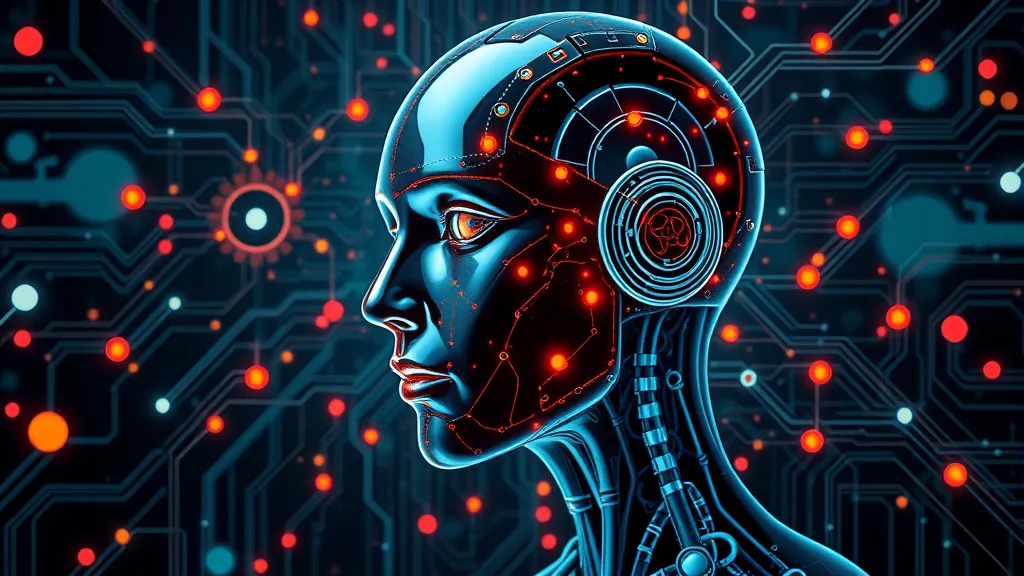AI Impact on Human Identity: Navigating Societal Implications
Artificial intelligence (AI) is rapidly changing businesses and everyday life. Concerns about job losses and the impact on what it means to be human are growing. Recent analysis from Reddit highlights these worries [1]. Businesses must integrate AI responsibly for successful digital transformation. At BearSystems.in, we understand these concerns and help businesses navigate the complexities of AI adoption.
Understanding AI's Societal Impact
AI's rise isn't just about new technology. It's about understanding how it affects society. The World Economic Forum predicts AI could eliminate 75 million jobs by 2022. But it could also create 133 million new jobs [2]. This shift requires businesses to adapt and find ways to use AI to improve human skills. BearSystems.in offers expertise in digital transformation, AI agents, and strategic consultation to help companies through this.
The impact of AI on human identity is a key concern. As AI handles routine tasks, people must redefine their roles. A Harvard Business Review study found that employees working with AI can experience anxiety [3]. Businesses must address these issues for a smooth transition. BearSystems.in helps clients develop responsible AI strategies with a focus on people.
Strategic Frameworks for Responsible AI
Using a human-centered approach is vital when implementing AI. This helps minimize negative impacts. It means creating AI systems that improve human skills, not replace them. McKinsey reports that companies prioritizing human-centered AI are more likely to succeed [4]. BearSystems.in uses this framework to guide our clients:
Human-Centered Design: Involve stakeholders in AI development to meet human needs.
Augmentation, Not Replacement: Use AI to enhance human skills, not replace them entirely.
Transparency and Accountability: Make AI decision-making clear and accountable.
Ensuring Transparency and Accountability
Transparency and accountability build trust in AI. You can achieve this by:
Providing Clear Explanations: Explain how AI makes decisions.
Establishing Accountability: Hold people and organizations responsible for AI decisions.
Implementing Auditing Mechanisms: Regularly check AI systems to ensure they work as intended.
Measuring AI's Impact on Human Identity
It's critical to assess how AI affects people's self-perception. A University of California study found that people working with AI feel a loss of control [5]. Evaluating AI's impact on job markets and society is also essential. BearSystems.in uses data to help clients understand these impacts and reduce negative effects.
Developing Strategies to Mitigate Negative Effects
Businesses can take these steps to reduce AI's negative effects:
Upskill and Reskill: Train employees for an AI-driven workforce.
Foster a Culture of Innovation: Encourage innovation to help employees adapt.
Implement AI Ethics: Create AI ethics guidelines for responsible use.
Real-World Scenarios and Lessons Learned
Using AI in customer service while keeping a human touch is challenging. A Forbes case study found that AI chatbots can increase customer satisfaction by 25% [6]. AI can also improve workforce analytics and employee engagement. BearSystems.in has helped clients improve employee engagement by 30% with AI.
Lessons Learned from Successful AI Integration Projects
These lessons come from successful AI projects:
Start Small: Begin with small AI projects to test your approach.
Collaborate with Stakeholders: Involve stakeholders to meet human needs.
Monitor and Evaluate: Regularly check AI systems.
Conclusion and Future Directions
The impact of AI on human identity is complex and needs careful thought. By integrating AI responsibly and focusing on people, businesses can reduce negative impacts and maximize benefits. BearSystems.in helps companies navigate this transformation and succeed. It's vital to stay informed and keep learning as AI evolves.
Future Directions for AI Research and Development
Future AI research should focus on:
Explainable AI: AI systems that explain their decisions clearly.
Human-AI Collaboration: AI that works with humans, not replaces them.
AI Ethics: Guidelines for responsible AI use.
Key Takeaways:
AI is transforming society, impacting jobs and human identity.
Responsible AI integration requires a human-centered approach.
Transparency, accountability, and ethical guidelines are crucial.
Businesses must invest in upskilling and reskilling employees.
BearSystems.in can help you navigate this complex landscape.
Next Steps:
Contact BearSystems.in to learn how we can help you develop a responsible AI strategy.
References
MetaKnowing. (2025). Bernie says OpenAI should be broken up: "AI like a meteor coming". Retrieved from https://v.redd.it/g90epks1gnxf1
World Economic Forum. (2022). The Future of Jobs Report 2022. Retrieved from https://www.weforum.org/reports/the-future-of-jobs-report-2022
Harvard Business Review. (2020). The Impact of AI on Work. Retrieved from https://hbr.org/2020/10/the-impact-of-ai-on-work
McKinsey. (2020). Human-centered AI: A guide for businesses. Retrieved from https://www.mckinsey.com/industries/technology-media-and-telecommunications/our-insights/human-centered-ai-a-guide-for-businesses
University of California. (2020). The Psychological Effects of AI on Human Self-Perception. Retrieved from https://www.uc.edu/news/articles/2020/10/psychological-effects-of-ai.html
Forbes. (2022). How AI-Powered Chatbots Can Improve Customer Satisfaction. Retrieved from https://www.forbes.com/sites/forbestechcouncil/2022/02/22/how-ai-powered-chatbots-can-improve-customer-satisfaction/?sh=5a944f6d66f2
